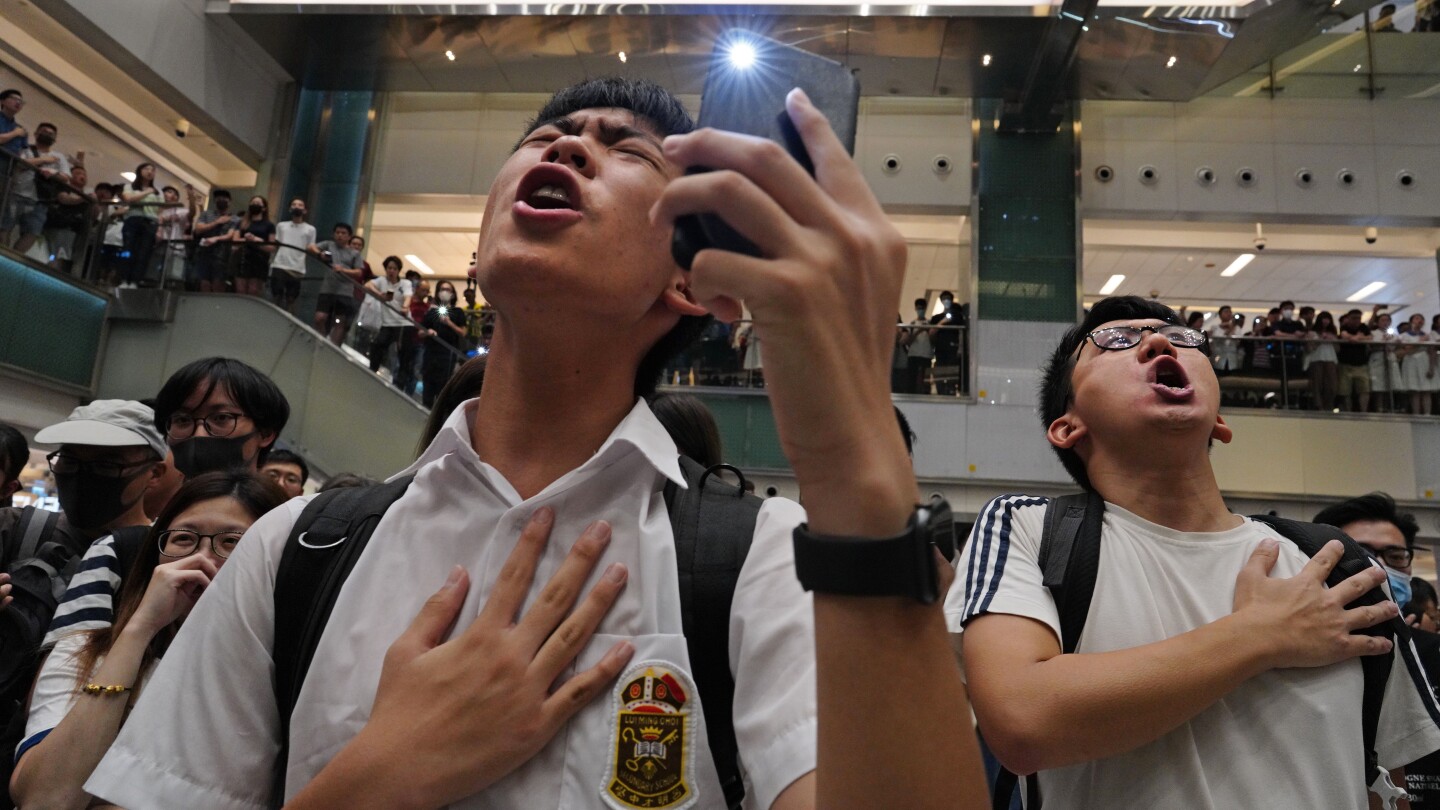HONG KONG (AP) — An appeals court Wednesday granted the Hong Kong government’s request to ban a popular protest song, overturning an earlier ruling and deepening concerns over the erosion of freedoms in the once-freewheeling global financial hub.
“Glory to Hong Kong” was often sung by demonstrators during the huge anti-government protests in 2019. The song was later mistakenly played as the city’s anthem at international sporting events, instead of China’s “March of the Volunteers,” in mix-ups that upset city officials.
Critics have said prohibiting broadcast or distribution of the song further reduces freedom of expression since Beijing launched a crackdown in Hong Kong following the 2019 protests. They have also warned the ban might disrupt the operation of tech giants and hurt the city’s appeal as a business center.
Judge Jeremy Poon wrote that the composer intended for the song to be a “weapon” and so it had become, pointing to its power in arousing emotions among some residents of the city.
“We accept the assessment of the executive that prosecutions alone are clearly not adequate to tackle the acute criminal problems and that there is a compelling need for an injunction,” he said.
The ban would target anyone who broadcast or distributed the song to advocate for the separation of Hong Kong from China. It would also prohibit any actions using the song to misrepresent it as the national anthem with the intent to insult the anthem. But it would exempt lawful journalistic and academic activities.
The government went to the court last year after Google resisted pressure to display China’s national anthem as the top result in searches for the city’s anthem instead of the protest song. But a lower court rejected its initial bid last July and the development was widely seen as a setback for officials who are seeking to crush dissidents following the protests.
The government’s appeal argued that if the executive authority considered a measure necessary, the court should allow it, unless it considered it will have no effect, according to a legal document on the government’s website.
The government had already asked schools to ban the protest song on campuses. It previously said it respected freedoms protected by the city’s constitution, “but freedom of speech is not absolute.”

